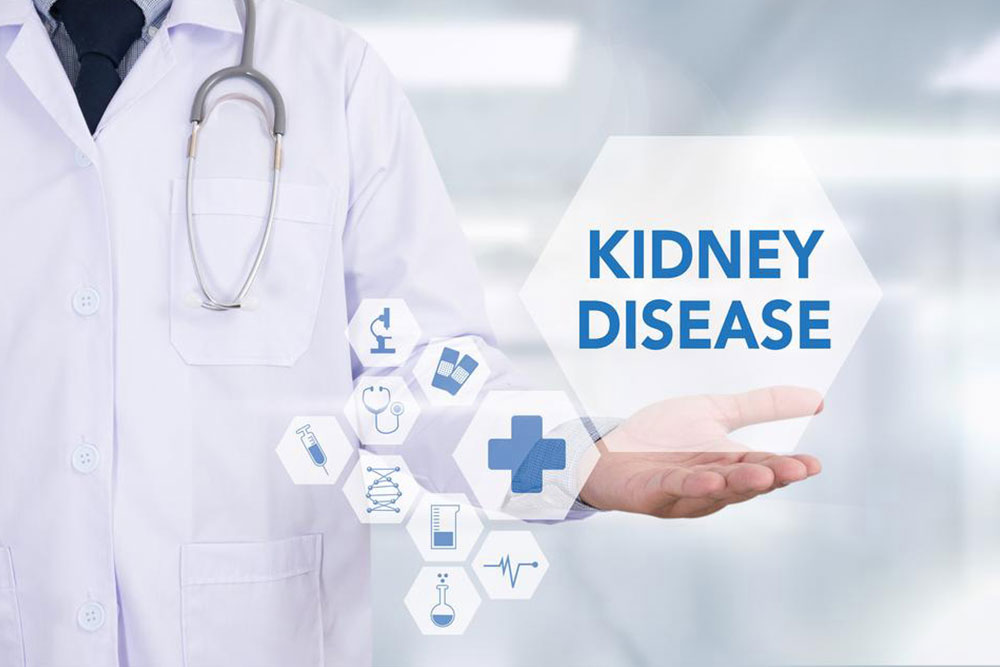The third stage of kidney disease

Chronic kidney disease is a gradual effect of kidney damage, which can happen either due to physical injuries or some other health complications such as high blood pressure and high blood sugar. Once the kidneys become damaged, they tend to be dysfunctional and are not able to filter blood or perform other functions, which would keep the affected individual healthy. Some of the most crucial functions performed by kidneys include balancing the fluids in the body, regulating the hormones, keeping the blood pressure under control and helping in making red blood cells. When kidney disease takes place, the kidneys fail to perform all these functions.
Stages of kidney disease
There are five stages of the chronic kidney disease where the mildest is stage 1 and the most severe is stage 5. Stage 3 kidney disease symptoms are the first to show up, although in the early stages itself, the kidneys fail to function properly. And when it comes to stage 3, about half of the kidney functions are lost. This would lead to other issues such as high blood pressure and problems with bone health. It is very important to start treatment at this stage to help slowing down of kidney damage because severe kidney damage happens at stage 4. In the final stage, the affected individual would require dialysis or kidney transplant in order to live.
Stage 3 kidney disease symptoms
Even though there are no noteworthy symptoms of kidney failure in the first two stages, signs and symptoms start to showcase themselves from the third stage. These include the following:
– Fatigue and lethargy
– Retention of fluids in the body
– Shortness of breath
– Swelling or edema in the extremities of the body.
– Change in frequency as well as the texture and color of urination. The urine becomes foamy and has either the color of tea or dark orange. It may also change to red, if there is a presence of blood cells.
– Some people also report that they suffer from kidney pain at the lower back and sleep problems owing to restless legs and muscle cramps.
Possible ways of managing stage 3 kidney disease symptoms
There are several ways of managing these symptoms, but most importantly, it is crucial to consult with an expert without any delay. Someone suffering from stage 3 kidney disease may also be referred to a dietitian since diet is a critical part of the treatment process. Consuming the right diet can preserve kidney function along with overall health. If blood levels are above normal, it is important to take high-quality potassium and protein. Many doctors recommend decreasing the intake of saturated fats for lowering cholesterol levels.
There is no cure for this ailment, but it is possible to slow down its progress. In many cases, it has been found that with proper dietary and lifestyle changes, the affected person can live longer and healthier.



